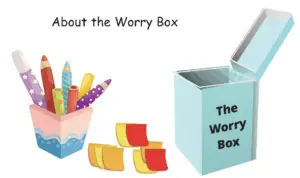“He who busies himself with things other than improvement of his own self becomes perplexed in darkness and entangled in ruin. His evil spirits immerse him deep in vices and make his bad actions seem handsome.” Ali ibn Abi Talib
“I have a great respect for incremental improvement, and I’ve done that sort of thing in my life, but I’ve always been attracted to the more revolutionary changes. I don’t know why, Because they’re harder. They’re much more stressful emotionally. And you usually go through a period where everybody tells you that you’ve completely failed.” Steve Jobs
“The truth is incontrovertible. Malice may attack it, ignorance may deride it, but in the end, there it is.” Winston Churchill
How easy it is to be judgmental of others. We all do it on a daily basis. Perhaps we don’t see it, or even realize we are doing it. Many of us would be surprised to find out, how often we make assessments of others. We judge people right down to their walk, talk and attributes of all kinds. It is almost a pastime, and we don’t mean any harm. Maybe it is time to question the habits and the reasons. We can’t always change our personal attributes. For this reason, any disapproval from others is heartbreaking. Sometimes our critique is based on our mood, attitude or feelings about the individual. Our examination might be fruitless and subjective. The dilemma arises, when we don’t probe into some legitimate matters. Speaking against one’s personal qualities is abhorring. When we call attention to matters that are critical to one’s safety and involves the growth of all of society, it demands our attention. No one likes analysis of any kind. I envy and admire those, who can make a helpful point, without displaying any form of rebuke. In most cases, any disapproval sends us into a frenzy of mistrust.
I never plan on being reproachful, but at times the truth blurts out of my mouth, and of course feelings are hurt. I am so sensitive myself, and loathe direct remarks, yet to correct it in myself is not easy. Sometimes I get the laughs, like I can’t believe you just said that. We all handle censure in various ways. I am working on thinking before sharing.
Whenever we find answers to our questions, it results in more examination. The reason probably is because we are searching within the psyche, where the past, present and plans for the future blend. I suppose former hurts leave us more vulnerable, and truth is painful and sometimes devastating.
Confronting veracity probably solves some problems, but seems to be something we choose to do quietly and alone. Another person’s interference is unwanted. When people burst in with obvious conclusions and reviews, they are ignored. It is easier to softly push truth, and be less offensive. Weighing every spoken word before attempting to speak, tends to downplay the facts. Actually, the truth is restrained in the process.
Most of us listen more to the kinder version of evaluations, but I have no doubt the impact is stronger when given the blatant compelling honest version upfront. The condemnation is devastating but inquiries arise quickly, and solutions are attempted. If something is vital, do we get a free pass to speak immediately? Can we state our aim is pure and honorable, so overlook the bluntness? Maybe veracity is becoming hidden, because so many of us claim to fear truth. This unconsciously promotes the continuance of lies.
Of course it never appears to be appropriate to insult a person’s attributes, opinions, or social, political or religious beliefs. Should we get involved with issues that hurt others emotionally, physically, morally, verbally, or sexually? Perhaps most of us would agree that in those situations stepping forward is necessary. Interrogations arise regarding the truth, the reasons, the measurement of the right or wrong, and the rights of an individual to have privacy. We are all so totally chained to being politically correct, that we end up saying or doing nothing.
Probably those times we did confront an issue head on, we were perceived as the bad guy and nothing got accomplished. Most likely that is why we waver about helping or staying in the background. Staying detached from actual answers spares us the questions. By being removed from uncomfortable situations we delay the effort to search for results and we maintain a façade of peace. I personally think that those moments we spoke without support, are still vitally important. Nobody can erase the speech, and perhaps there will be some people who review what was said. Likely it can be the forerunner of change in the future.
The negative daily responses we give to others, perhaps are surface, and due to our own stress relieving need. They no doubt pain the receiver, but we think of them as harmless. They likely are more than harmless. We don’t want to open the door to actual answers, that might result in more inquiries. Fearing the unknown is difficult. We all must examine our own motives and fears about acknowledging truth of any kind when given a problem. Perhaps the hesitation that follows is the result of our own guilt, or that of some friends.
It is difficult to face our own shame, and very harsh to admit fault in our friends or families. If we view the critical remarks as harsh, it actually keeps the truth covered up. Fact is then coated in a falsehood. Saving face or respecting only designated rights, allows one to pick and choose randomly. The end result is loss of our humane code of ethics. Our hearts alone can tell us what is worthy of reflection.
The victims age, color, sex, political or religious beliefs and economic status is irrelevant. All that is required is attention to the obvious suffering endured. Whatever leaves people without options hope or love, demands our attention. Situations of the homeless, needy, and emotionally abused kids and adults, shouldn’t be left on the shelf for softer replies. If we have pride in our toughness, then we shouldn’t shirk at facing some honesty. It is never about shame or blame. It is about transforming problem situations. Courage helps us confront the difficult facts we encounter, when presented with some truths.
“The improvement of understanding is for two ends: first, our own increase of knowledge; secondly, to enable us to deliver that knowledge to others.” John Locke
“In matters of truth and justice, there is no difference between large and small problems, for issues concerning the treatment of people are all the same.” Albert Einstein
“Honesty is the first chapter in the book of wisdom.” Thomas Jefferson
“All truths are easy to understand once they are discovered; the point is to discover them.” Galileo Galilei


